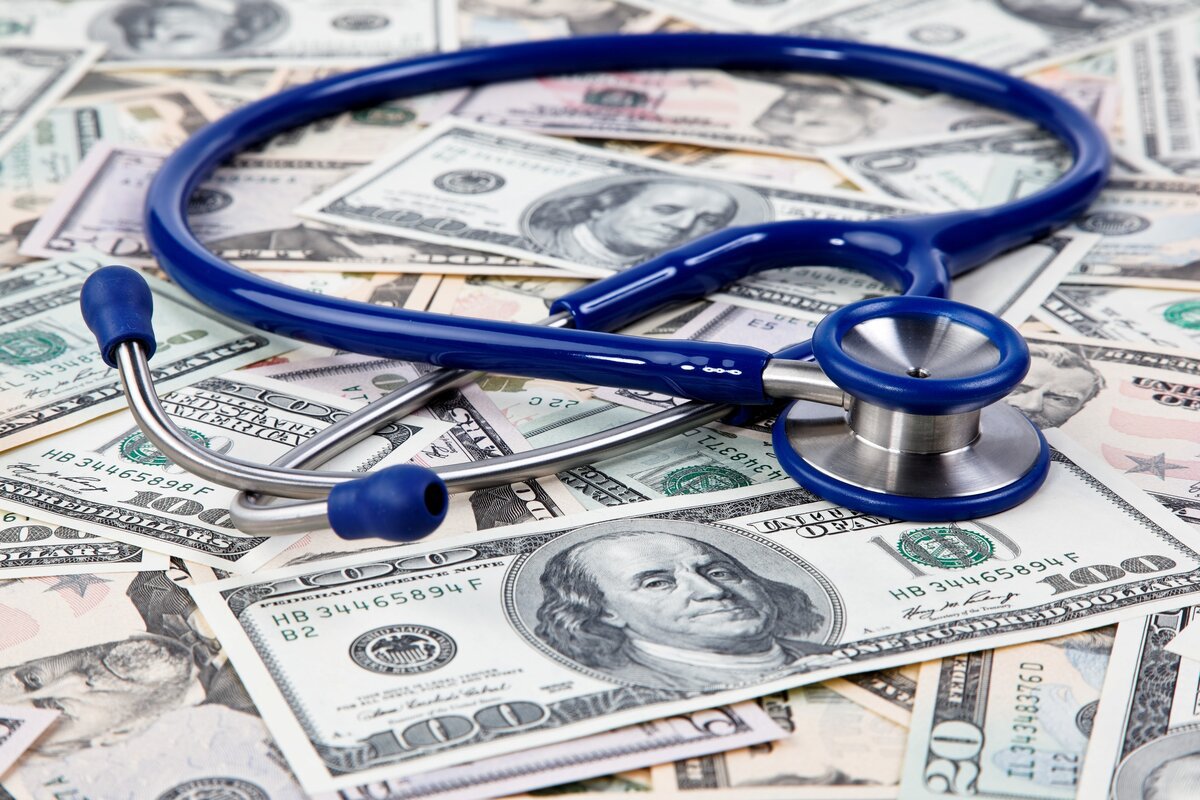Medical debt is a significant issue for many American households. According to a report by the Census Bureau, in 2021, over 27 million Americans are uninsured. This number is likely to go up as COIVD era Medicaid auto-enrollment rules have been rolled back. In the United States, out of pocket spending for medical services reached $433.2 billion in 2021 (source: Centers for Medicare & Medicaid Services), and approximately 19% of U.S. households could not afford medical care when it was needed. (Source: 2021 Census Bureau). According to a 2022 report by the Consumer Financial Protection Bureau, the most likely reason for a debt collector to contact a consumer was due to a medical-related debt. In fact, medical debt was a factor in 66.5% of consumer bankruptcy cases filed in 2022 (source: Centers for Medicare & Medicaid Services). One question that we are often asked by potential clients is whether medical debt is dischargeable in bankruptcy. The good news is that in most cases it is.
The primary objective of bankruptcy is to help debtors struggling with debt get a financial fresh start. Eliminating medical debt is part of obtaining that fresh start. In bankruptcy, medical bills are generally classified as non-priority unsecured debts. They are non-priority since they are not given special status in the bankruptcy code. Some examples of priority debts include domestic support obligations, taxes, bankruptcy attorney fees, and court fines. Medical bills are also unsecured debts since they are not supported by a security agreement with collateral. The most common types of secured debts are auto and mortgage loans. Non-priority unsecured debts are dischargeable in bankruptcy, meaning they are eliminated when the Bankruptcy Court issues a discharge to the debtor and do not have liens on any assets.
There is one situation where medical debt may be non-dischargeable. This is where an insurance company pays a debtor directly for medical services and not the medical service provider, and then the debtor does not turn over the funds to their doctor or medical practice even though they had an agreement to do so. The doctor who was not paid would be able to object to the discharge of such a debt under 11 U.S.C. § 523 of the Bankruptcy Code since the debtor’s actions (1) can be seen as fraudulent and/or (2) caused a willful and malicious injury to the doctor. In order to object to the discharge of a debt, the objecting party would need to bring a separate lawsuit in the Bankruptcy Court called an adversary proceeding. If the party bringing the adversary proceeding prevails, the debt would be deemed non-dischargeable and would survive the bankruptcy.
When filing for Chapter 7 Bankruptcy, a debtor must qualify by determining whether the Means Test in the Bankruptcy Code applies. The Means Test is a budget test that uses Census Bureau data and IRS standards to determine whether a debtor whose debts are primarily consumer debts has sufficient income to fund a Chapter 13 repayment plan. However, a debtor is exempt from the Means Test requirement if a majority of their debt is non-consumer related debt. This raises the question: is medical debt a consumer debt? This specific issue has not been litigated here in the Second Circuit, and there is a split in other bankruptcy courts. While some bankruptcy Courts find that all medical bills are consumer debts, others hold that emergency medical debt is a non-consumer debt. Compare In re Zgonina, Case No. 19-90467, at *7 (Bankr. C.D. Ill. Nov. 19, 2019) (holding medical bills are consumer debts) and In re Sijan 611 B.R. 850, 856 (Bankr. S.D. Ohio 2020) (holding that only routine medical bills were consumer debts).
If your medical bills have become insurmountable, filing for bankruptcy may be your best option to eliminate the debt and obtain a financial fresh start. The Law Offices of David I. Pankin, P.C. has been helping New Yorkers eliminate their debts in bankruptcy for over 25 years. You can contact our offices at (888) 529-9600 or by using our easy online contact form to schedule a free consultation.






